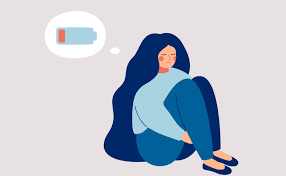Pride: 6 Ways to Engage in Radical Resistance through Self-Care


During this month, we celebrate the LGBTQIA+ community, identity, joy, and resilience. To acknowledge Pride, we must also acknowledge the significant struggles the LGBTQIA+ community continues to face- struggles that persist well beyond the month of celebrations and festive parades.
Due to ongoing discrimination, LGBTQIA+ individuals experience mental health challenges at significantly higher rates than their cisgender, heterosexual peers. LGBTQIA+ individuals, especially those who are trans, nonbinary, BIPOC, disabled, or have cross sectional identities, face disproportionate mental health challenges. These include:
- Increased risk of anxiety, depression, PTSD, and suicidal ideation
- High rates of rejection from family, school, or faith communities
- Barriers to affirming mental health care and safe housing
- Constant code-switching or self-monitoring in unsafe spaces
These ongoing challenges are exhausting to manage on a daily basis. So, how can you combat these daily obstacles to living your best authentic life? One way is by practicing self-care focused on rest, self-love, and re-energizing yourself.
Self-care has become a hashtag seen all over social media. We often reduce it to spa days, scented candles, and trips to the ice cream store. But for LGBTQIA+ individuals, self-care can be a deeply personal act of survival, resistance, and restoration. Living authentically in a society that often denies your existence takes tremendous energy and willpower. Daily life may include navigating microaggressions, discrimination, family rejection, or outright hostility—both in public and online. Standard self-care advice often overlooks these realities.
Self-care for queer and trans people must consider identity, expression, and community.
Here are inclusive and identity-affirming self-care practices for LGBTQIA+ individuals—or anyone supporting them through allyship.
1. Focus on Your Joy Without Guilt
In a world that profits from shame, choosing to take up space and celebrate yourself is an act of defiance and joy.
Try:
- Making a playlist of queer artists who energize you
- Wearing clothing that affirms your gender or style
- Reconnecting with affirming memories, chosen family, or your coming-out journey
- Celebrating personal milestones (e.g., name change anniversary, first Pride)
2. Set and Honor Your Boundaries
Your body is yours — and so is your right to rest, move, say no, or disconnect for a while.
Try:
- Setting boundaries with unsupportive people — even if they’re family
- Creating a “safe zone” in your home with affirming sensory cues; images, items, and scents
- Practicing movement that feels empowering (walking, dancing, stretching)
- Saying “no” without over-explaining your reasons. You don’t owe people explanations for needing a mental health break.
3. Connect With Your Chosen Family and Community
Connect with the LGBTQIA+ community or your chosen family — the friends, mentors, and partners who love and affirm you.
Try:
- Organizing low-pressure check-ins with queer friends
- Hosting a queer book club or hangouts
- Celebrating holidays or birthdays with your chosen community
- Reaching out, even when it’s hard — someone likely needs you too
- Connect with safe, supportive members of the community of LGBTQ folks in your city, college campus, faith organization, or online friend/support group.
4. Channel Creativity and Expression
Spend time fostering your creativity and your individual expression to celebrate yourself!
Try:
- Writing poetry or journaling about your lived experience
- Creating visual art or playlists that express your truth
- Dressing in ways that align with your inner self, regardless of norms
- Consuming art from and with others you feel aligned with
5. Rest as Resistance
In a culture that tells LGBTQIA+ people to always fight or “hustle” for respect and basic dignity, rest becomes radical.
Try:
- Practicing mindfulness, meditation, or deep breathing
- Listening to your body without guilt or self-judgment
- Creating a regular “do nothing” ritual — without needing to feel as if you need to “earn” it
- Sleeping in
- Turning your phone off or set to Do Not Disturb for as long as you need. Letting the world wait until you are ready.
6. Reach out for professional support
Due to the daily challenges and potential for burnout, it can be helpful to seek professional support from mental health providers who offer affirming care and guidance on how to move beyond survival mode.
Prioritize:
- Making an appointment with a therapist (if you already have one).
- Beginning the journey of seeking therapy, utilize resources that are vetted for the LGBTQIA+ community
- office@mbh-mi.com
- https://lgbtqhealthcaredirectory.org/
- https://www.inclusivetherapists.com/
- Connecting with a crisis counselor through TrevorChat
Conclusion
Queer-affirming self-care should not be viewed as a luxury- it can be life-saving. It’s not always pretty or Instagram-worthy. Sometimes it may look like crying in the shower, ghosting toxic people, or quietly affirming your worth in the mirror. Wherever you are in your journey — out, closeted, questioning, healing, surviving, affirming — you deserve care that sees all of you. You are worthy of rest, joy, and love all year long-not just during the month of June. But regardless, Happy Pride- a month to celebrate YOU.



















Recent Comments